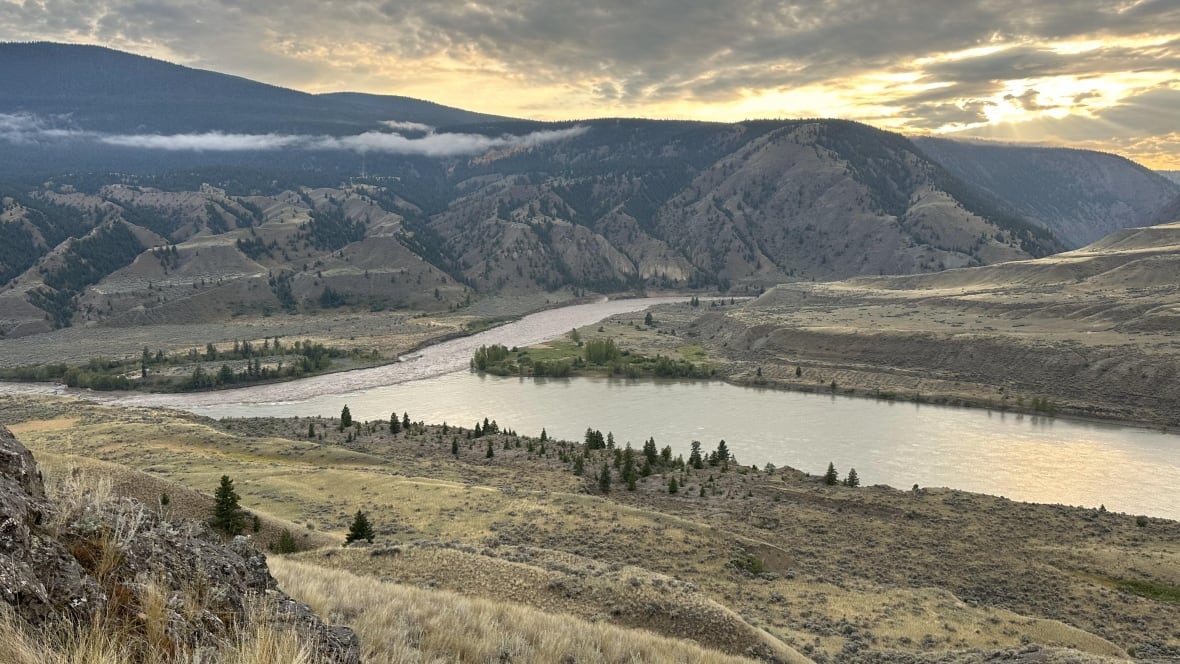Archaeological field school helps Indigenous students learn more about their history — and themselves
Dozens of archaeological sites uncovered in the wake of the Chilcotin landslide last summer
On a warm sunny Tuesday morning in July, nine students prepare to sift through soil in search of answers.
It's part of a six-week archaeological field school through the Esk'etemc (pronounced ess-KET-em) First Nation, which gives Indigenous students the chance to learn about the profession, but also about the long history of their families, culture, and ultimately, about themselves.
As the group heads out into the field in B.C.'s Alkali Valley, about 180 kilometres northwest of Kamloops, they're all but vibrating with anticipation, eager to uncover a pit house — and all the myriad artifacts within it.
Greg Harry, 50, of Alkali Lake, has long been interested in archaeology.
"This kind of opens my eyes," he said. "I want to go back and see how we lived back in the day, and how we survived 'til now."
Recent archaeological findings
Earlier this year, the Williams Lake First Nation and Esk'etemc revealed they had uncovered entire communities that had not been previously recorded, in the wake of the Chilcotin River landslide in July 2024.
A total of 70 sites, some new and some previously known, were documented. The First Nations said 31 are pre-contact Secwépemc village sites. Seven include things like burials, caves and rock art.
"It's pretty neat to think about the amount of history that is in our traditional territories," Williams Lake First Nation Kukpi7 (Chief) Willie Sellars told CBC News back in April. "We need to continue to tell the stories and we need to continue to celebrate the territory because there is a massive healing component to being out on the land.
"That's what we need to encourage more people to do, because that's exactly where our ancestors were and still are for the most part."

Esk'etemc education director Calvin Dubray did just that. Through a partnership with Thompson Rivers University (TRU), he put together the field school, which teaches skills like surveying, mapping, excavation and lab work, all completed on Esk'etemc land.
"We've always had to contract out to different contractors to do the archaeological work," he said. "I thought, why can't we do this ourselves?"
At the end of the program, all nine students will be qualified to work on archaeological sites.
"They will have enough experience to be what's called 'field ready,' so they would be able to go out with certified archaeologists and do some of the field work," Dubray said.
Audrey Grinder, 52, said she would love to become a certified archaeologist one day.
"It's discovery in the most natural form," she said. "Every time that I go with a trowel, it's like wow, what am I going to find? What are the ancestors going to show me? What are they going to allow me to see, to understand or to learn? I get this excited feeling every time I do it."
Governed by Esk'etemc protocols
Archaeologist and TRU instructor Beth Bedard said this particular program is unique in that the project is governed by Esk'etemc Nation's protocols, and they have control over who has access to the project and its findings.
"That's a very important part of this work," she said. "Esk'etemc protocols together with scientific rigour and results, [helps with] understanding the history of the community in a fuller way."
She said the work is more in-depth than other excavation sites, because it combines oral histories with scientific findings.
"When this is tied together with the community's oral history, we get a much more complete and meaningful picture of the past than an archaeological excavation that is conducted through just scientific methodology."
'A real second calling'
For many students, the field school has been an opportunity to gain that experience, and maybe consider another career, one that would have deep meaning for them. For others, the program has given them a better sense of who they are and where they come from.
"I wanted to understand a little bit more about where I came from, more about my history, more about belonging and understanding the past to give insight to why we're here, our purpose," Grinder said.
Teena Ogden, 67, described the experience as "rejuvenating."
"I'm gonna tell everybody about it," she said.
Ogden said she's inspired to continue her work learning about her history, and next, hopes to learn the Secwepemctsín language.
"It's like I'm getting a second wind, it's like I'm getting a real second calling."
